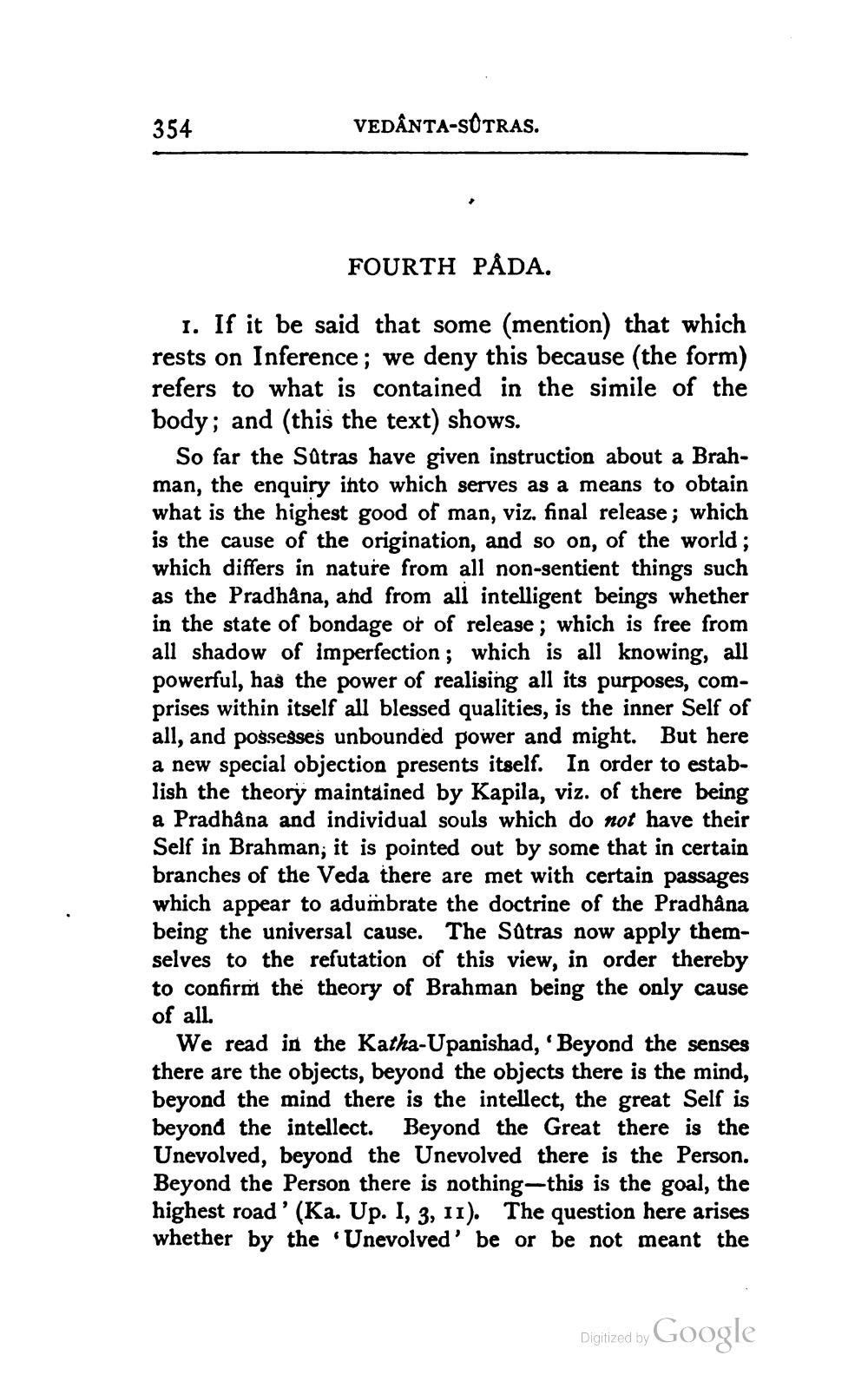________________
354
VEDÂNTA-SOTRAS.
FOURTH PÅDA.
1. If it be said that some (mention) that which rests on Inference; we deny this because the form) refers to what is contained in the simile of the body; and (this the text) shows.
So far the Satras have given instruction about a Brahman, the enquiry into which serves as a means to obtain what is the highest good of man, viz. final release; which is the cause of the origination, and so on, of the world; which differs in nature from all non-sentient things such as the Pradhana, and from all intelligent beings whether in the state of bondage or of release ; which is free from all shadow of imperfection; which is all knowing, all powerful, has the power of realising all its purposes, comprises within itself all blessed qualities, is the inner Self of all, and possesses unbounded power and might. But here a new special objection presents itself. In order to establish the theory maintained by Kapila, viz. of there being a Pradhana and individual souls which do not have their Self in Brahman; it is pointed out by some that in certain branches of the Veda there are met with certain passages which appear to adumbrate the doctrine of the Pradhana being the universal cause. The Sätras now apply themselves to the refutation of this view, in order thereby to confirm the theory of Brahman being the only cause of all.
We read in the Katha-Upanishad, 'Beyond the senses there are the objects, beyond the objects there is the mind, beyond the mind there is the intellect, the great Self is beyond the intellect. Beyond the Great there is the Unevolved, beyond the Unevolved there is the Person. Beyond the Person there is nothing—this is the goal, the highest road' (Ka. Up. I, 3, 11). The question here arises whether by the Unevolved' be or be not meant the
Digitized by
Digitized by Google




